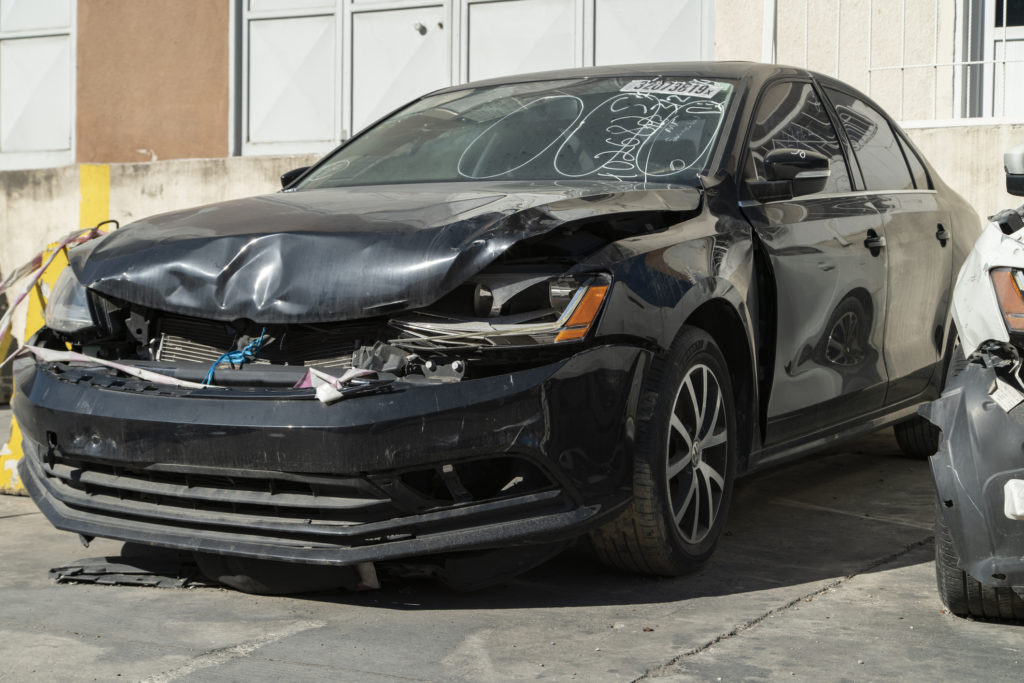It’s quite common for potential personal injury plaintiffs to ask what their case is worth. While it would be nice if there were some clear-cut rules indicating how much someone should be compensated based on their injuries, no such guidance exists. However, there is quite a bit of information that can provide insight as to how the amounts are calculated, what factors are considered, and what you can do to improve the likelihood of getting the best settlement possible.
One of the biggest concerns in any car accident involving personal injury is making sure you can recover both physically and financially. Understandably, you will have questions. How much will it cost to repair or replace your vehicle? Who will pay medical bills and cover lost wages? Can you be compensated for pain and suffering?
Some answers are partially addressed by state law and, as such, are relatively clear. Still, courts have applied nuanced interpretations to the law, and there are also instances where the established law’s remedy is insufficient to cover all of your economic and non-economic losses. You will want a knowledgeable personal injury lawyer to help you decide if it’s reasonable for you to pursue a settlement, advocate on your behalf, and to help you navigate the process.
What Does New Jersey Law Say?
First, let’s quickly review your protections under New Jersey law. The state requires all drivers to have car insurance so that victims of car accidents have a way to get compensation. New Jersey is also a no-fault state, requiring drivers to carry insurance that covers their own injuries regardless of who was at fault for the accident.
The state requires all drivers to have car insurance so that victims of car accidents have a way to get compensation
New Jersey statute 39:6A-4 requires all car insurance policies to include coverage for Personal Injury Protection (PIP), sometimes called Medical Expense Benefits (MEB). When a person or his/her dependents are injured in a car accident, these benefits are available to cover medical bills.
What Personal Injury Protection Benefits Will and Will Not Cover
PIP benefits must cover personal injuries to the insured or his/her dependents “as a result of an accident while occupying, entering into, alighting from or using an automobile, or as a pedestrian, caused by an object propelled by or from an automobile.” This means that the insured and dependents are covered when they are injured in a car accident, whether or not they’re actually in a vehicle.
PIP benefits will only pay for what the law calls economic damages. That means PIP benefits cover medical bills and wages lost because the injured person cannot work, but they do not cover pain and suffering, loss of enjoyment of life, or other, less-easily quantifiable (non-economic) types of damage.
It’s also important to note that PIP benefits have policy limits. The required PIP coverage minimum is a mere $15,000. The insurer is not required to pay anything over the policy limit, so medical bills over the limit will not be covered. A broken arm or a gash requiring multiple stitches can easily exhaust $15,000. What if your injuries are even more severe?

Case Study: $21 Million Award
What makes this case unique: Defense witness testified in favor of plaintiff; judge was a former Attorney General who had lost a substantial case to Mr. Rosenblum years earlier; Appellate Court actually increased the award amount.
Should I Pursue a Settlement?
If your insurer denies PIP benefits, a lawyer can file a lawsuit to force them to pay for your economic losses (medical bills and lost wages)
Additionally, a personal injury attorney can help recover medical costs that exceed the PIP policy limit. It also may be possible to recover the less quantifiable (non-economic) damages (pain and suffering; mental anguish) from the party at fault, especially if the accident resulted in permanent injury.
New Jersey defines permanent injury as:
- Death
- Dismemberment (loss of a limb)
- Significant disfigurement or scarring
- Displaced bone fractures
- Loss of a fetus, or
- Damage to a body part or organ that is not likely to heal within a reasonable degree of medical probability
While the injuries listed above are obviously permanent, it’s not always clear what other types of injuries courts may consider permanent, as some cases have shown. A personal injury lawyer can determine whether such a claim is viable, and his/her involvement may positively affect the award one can expect to receive.
Making Your Case for a Settlement
Experienced lawyers will be able to help you thoroughly prepare a case if it is determined that negotiating with an insurance company or a lawsuit is worth pursuing. They will advise you on the best steps to take immediately following an accident involving personal injury. The extent of both your injuries and fault of the other driver can be factors in determining the amount of a settlement.
A personal injury lawyer will collect all of the evidence needed to secure a settlement. You will want to show the severity of your injuries and provide adequate supporting medical records. For example, you will need a report from a doctor indicating that the injury is unlikely to fully heal if you are claiming that your injury is permanent. Proof of the other driver’s fault, such as an accident report and eyewitness accounts, can also increase the amount you receive.

What Kind of Settlement Can I Expect?
Insurance companies have formulas they rely on to determine car accident settlements. Typically, a multiplier based on medical expenses is used to calculate non-economic damages (pain and suffering). This amount is added to the quantifiable costs like medical expenses and lost wages. The multiplier can range from 1.5 to 5, with the severity of injuries influencing the number used. A multiplier of 5 is usually applied for permanent, life-altering injuries; most awards use a 2 or 3 multiplier.
Example: You break your right leg in a car accident and need minor surgery to repair the damage. The medical bills total $30,000. Follow-up rehab costs another $5,000, and you lose $15,000 in pay since you are unable to work for a while. In the end, you are able to recover fully. A multiplier of 2 is negotiated by the insurance company and your attorney.Your economic damages are $50,000, your pain and suffering would be valued at $100,000 ($50,000 multiplied by 2), and the total settlement would be $150,000.
At one time, insurance company adjusters would meet to discuss which multiplier to use and finalize claim amounts based on past settlements, jury verdicts, and other historical information they might have had access to. Nowadays, computer software programs apply formulas to do settlement calculations. Colossus was among the first such products on the market, and it’s estimated that half of all claims in the U.S. are handled by this program.
Colossus has several hundred codes representing various types of injuries, each of which is assigned a dollar value settlement range. There are other similar insurance adjustment software packages on the market as well, and they apply the same or similar approach to calculating settlements. The problem is that such programs can’t measure the real extent of an injured person’s pain and suffering. It can’t foresee possible future expenses caused by issues that develop weeks or months after your accident. Two people with the very same injury can have their lives impacted in very different ways. You don’t have to simply accept what the program calculates for you.
As noted earlier, fault and severity of the injury are factors that can increase or decrease award amounts. Even after insurance adjustment software arrives at a settlement amount, the insurance adjuster assigned to your case may have some leeway in negotiating further. You will want an experienced lawyer to get you the best settlement possible.
Is My Settlement Money Taxable?
In most cases, the answer to this question is a simple “no,” but there are exceptions. For example, while the IRS considers settlements for physical injuries exempt from taxes, its guidelines view emotional injuries, like depression, differently. That portion of car accident settlements is generally treated as taxable income. You will also want guidance on how to address car accident medical expenses on your tax return. If you claim them as a deduction, that portion of your settlement may also be taxed. As a general rule, you should consult a knowledgeable personal injury lawyer before signing any settlement agreement.
Who Should I Contact if I’ve Been Injured in a Car Accident?
If you’ve been injured in a car accident, contact Rosenblum Law for a free consultation today. Our experienced personal injury lawyers know how to deal with insurance companies and will help to get you the best award possible. New Jersey has a two-year statute of limitations for personal injury actions, so make sure you contact us as soon as possible to avoid losing out on your claim. Call 888-815-3649 or email us.

